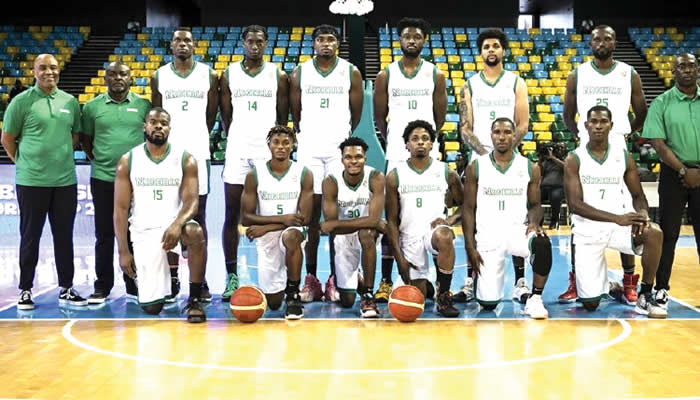Nigeria’s national men’s basketball team, D’Tigers, concluded their campaign at the 31st FIBA AfroBasket tournament in Angola, marking the end of a journey that began with promise but ultimately concluded with disappointment. Their quarter-final exit against Senegal, a strong contender in African basketball, halted their progress, leaving them to reflect on a mixed performance in the tournament. While the team showcased moments of brilliance, particularly in the group stages, their inability to overcome Senegal highlighted areas needing improvement as they look towards future challenges, particularly the FIBA Men’s World Cup Qualifiers. The team’s return to Nigeria on Monday, August 25th, marked a transition point, shifting focus from the immediate disappointment of the AfroBasket exit to the long road ahead toward qualification for the 2027 World Cup.
The AfroBasket tournament, held in Angola from August 12th to 24th, witnessed D’Tigers navigate a challenging group stage with resilience and skill. Victories against Madagascar, three-time champions Tunisia, and Cameroon propelled them to the top of Group B, accumulating six points and establishing themselves as a force to be reckoned with. Their performance in these early games instilled hope and generated excitement among fans back home, anticipating a deep run into the tournament. However, the quarter-final clash against Senegal proved to be a stumbling block, exposing vulnerabilities and ultimately ending their aspirations for an AfroBasket title. Despite a valiant effort, D’Tigers succumbed to Senegal’s pressure, culminating in a 91-75 defeat. The loss, while disappointing, provided valuable lessons and identified areas for improvement as the team embarks on its next challenge.
The post-tournament period was marked by some controversy surrounding the team’s return travel arrangements. Despite the team’s elimination on Wednesday, August 23rd, the return tickets booked by the Nigeria Basketball Federation (NBBF) were scheduled for Monday, August 25th. This two-day delay prompted requests from several senior players to reschedule their flights, but the federation reportedly declined these requests. Consequently, some players, including NBA star Josh Okogie of the Houston Rockets, opted to purchase their own tickets to expedite their return. This incident added an unnecessary layer of complexity to the team’s departure and raised questions about the NBBF’s logistical planning and responsiveness to player needs.
Despite the quarter-final exit, individual performances offered glimmers of hope for the future of Nigerian basketball. Players like Caleb Agada, Josh Okogie, Stan Okoye, and Ike Nwamu consistently shone throughout the tournament, demonstrating their talent and leadership on the court. Their contributions underscore the depth of talent within the Nigerian basketball ecosystem and provide a foundation upon which to build for future competitions. Their performances also highlighted the importance of fostering and nurturing this talent, providing adequate support and resources to enable these players to reach their full potential.
With the AfroBasket campaign concluded, D’Tigers’ focus now shifts towards the FIBA Men’s World Cup Qualifying Series, slated to begin in November. These qualifiers represent a crucial stepping stone towards securing a place in the 2027 World Cup, to be held in Qatar. Having missed out on the 2023 edition, qualifying for the 2027 tournament becomes a paramount objective for the team and the federation alike. The qualifiers will demand meticulous preparation, strategic planning, and consistent performance. Drawing lessons from the AfroBasket experience, both positive and negative, will be essential for a successful qualifying campaign.
The road to the 2027 World Cup promises to be challenging yet holds significant opportunities for Nigerian basketball. Building upon the individual brilliance displayed at AfroBasket, coupled with improved team cohesion and strategic adjustments, D’Tigers have the potential to make a strong statement on the international stage. The team’s last appearance at the FIBA Men’s World Cup was in 2019 in China, under the guidance of former head coach Alex Nwora. Recapturing that level of success and securing a place in the 2027 tournament will require a collective effort, involving players, coaching staff, federation officials, and the unwavering support of Nigerian basketball fans. The journey towards Qatar 2027 commences now, and the lessons learned from Angola will undoubtedly shape the team’s approach and determination in the crucial qualifying series ahead.














